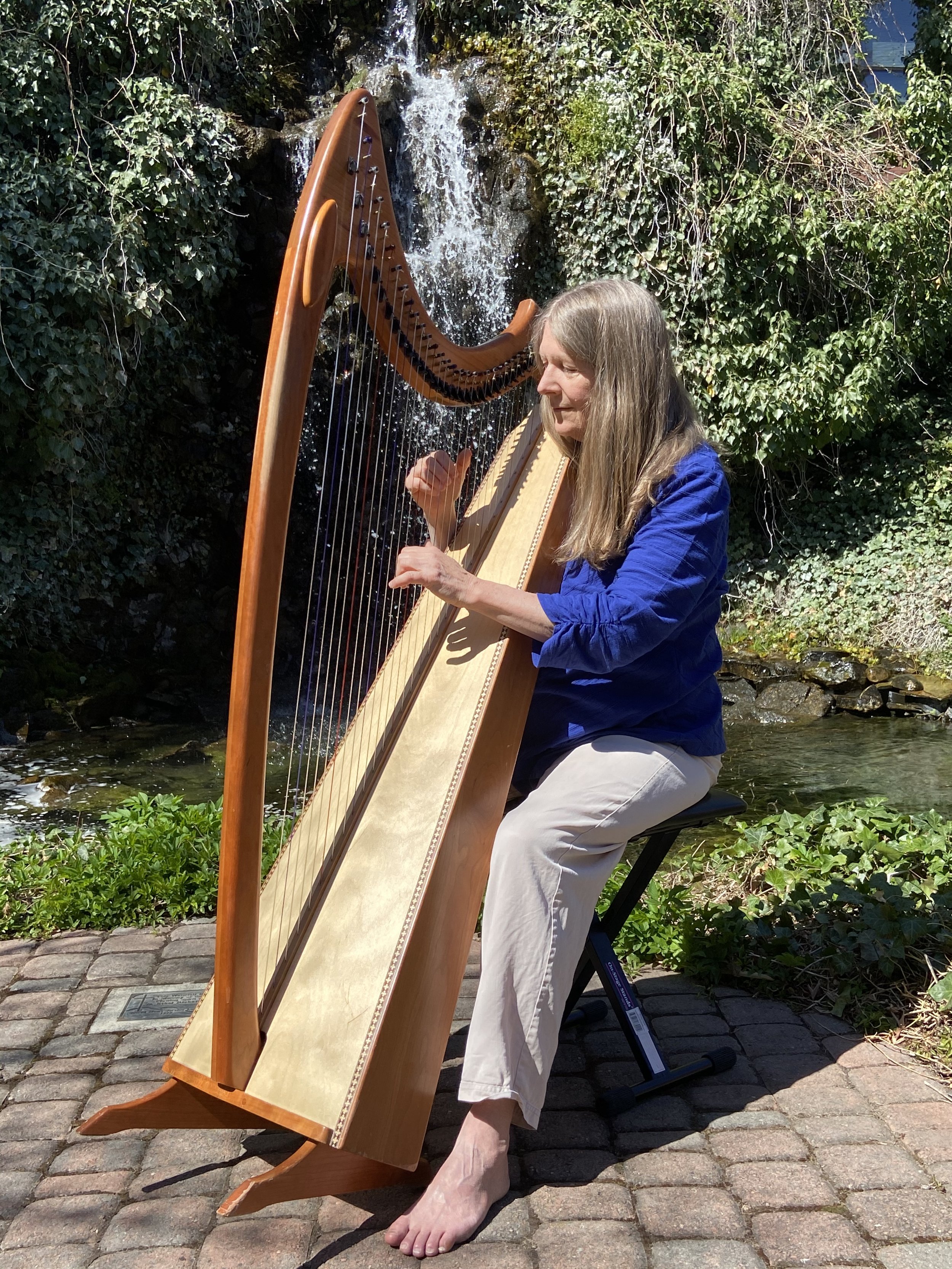Music-thanatology
MUSIC-THANATOLOGY
The integration of music and medicine to comfort the sick is a concept that is ancient. From the healing temples of Greece to the monastic infirmaries of the Middle Ages, music has proven to be a powerful resource to ease pain and suffering. Rooted in this tradition, music-thanatologists today offer live music prescriptively to patients suffering from many forms of life threatening illness and at the end of life.
Music-thanatology is a component of palliative care, the medical discipline focused on the relief of suffering and the promotion of quality of life. The music-thanatologist brings harp and voice to people who are terminally ill, potentially softening fear, discomfort and suffering with the prescriptive qualities of music. Harp vigils last approximately 30 to 45 minutes or longer, depending on the patient's needs. It has no religious or nonreligious boundaries and is appropriate for all.
Music-thanatology is not intended to entertain or distract the patient. Instead, the music allows the patient to enter the unbinding process of letting go in his or her own way. It allows families to be with their loved ones in a very intimate yet safe atmosphere where words are not necessary, and words that are said can come from a deep place.
Eased Respirations
Reduced Anxiety
Decreased Pain
Deeper Rest
Music delivered live can attend dynamically to the patient's ongoing needs. That is why music-thanatologists are trained to respond to the patient's ever-changing physiological, emotional, and spiritual states.
No one is ever refused a vigil because of an inability to pay. The cost to provide a vigil ranges from $150 to $175. Some hospices and hospitals include this as a part of their service.
Visit Music-Thanatology Association International's website for additional information or where you may find a music-thanatologist in your area.
Or visit accordaschool.org, the website for the music-thanatology school for how to train to do this special work.
A patient or family member must give permission for a music vigil. If you perceive that your loved one could benefit from this offering please contact Catharine Drum Scherer, MA, CM-th Certified Music-thanatologist (509) 475-6992
I am positive your music comforted mom and I know it comforted us. It helped our minds break the barriers we had set and it opened our hearts to communicate the love we were sheltering.
Daughter of Elaine
“If I could paint the effect of (the harp) music at the hospital, I’d show streamers of bright colors filtering out of the room and throughout the floor, gently caressing each person who heard your beautiful music. The music lifted me out of myself, my pain for long enough to reach a new step on the staircase of healing; helping me move on and up.”
Toni, cancer patient
“Mom so enjoyed your visits and music. It eased her pain and helped her journey be more gentle.”
Daughter of a patient
Thank you so much for your beautiful harp music while we were saying our final farewells. Your support made things much easier for us
Wife of Dick
